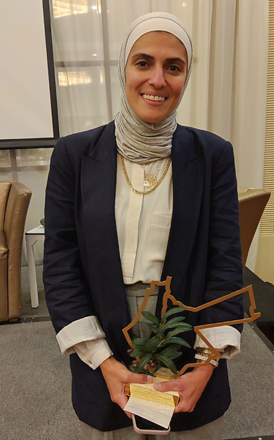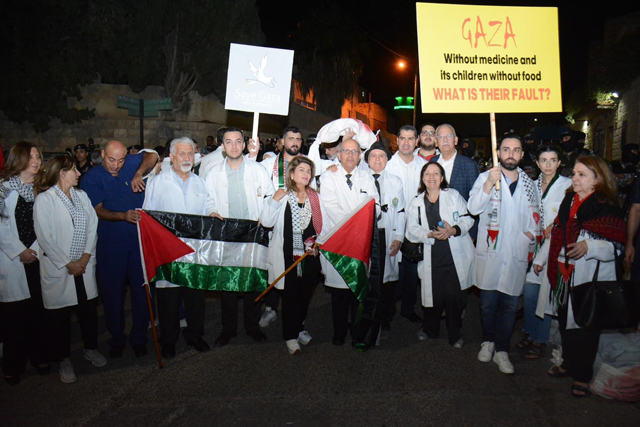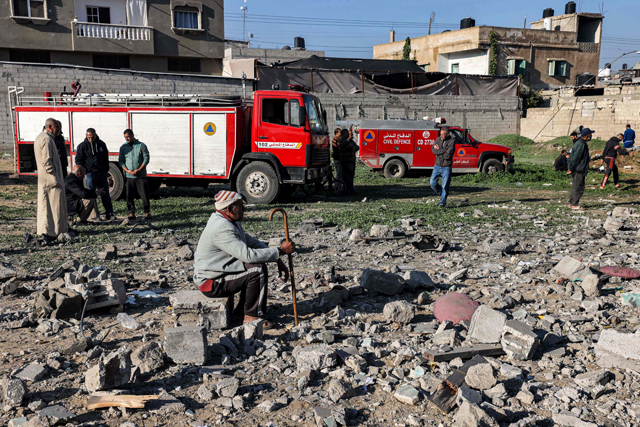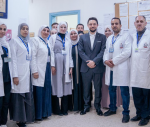You are here
'Pregnant women in Gaza struggle to even have one meal a day'
By Heba Elayyan - May 05,2024 - Last updated at May 05,2024
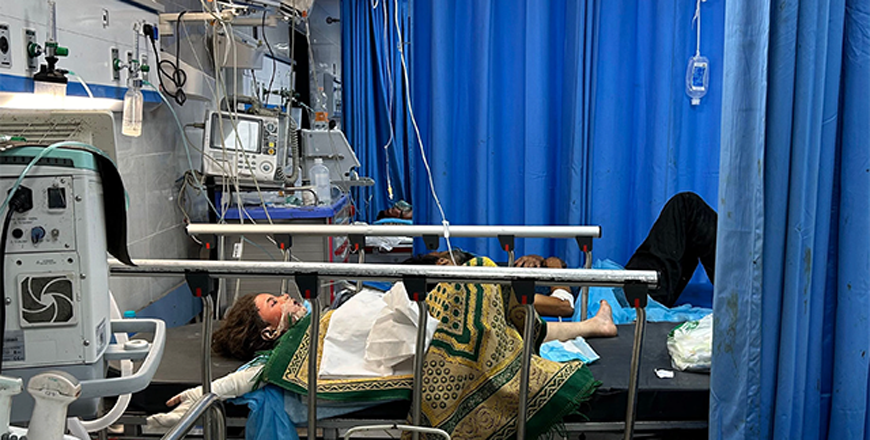
Patients receive treatment at Al Shifa hospital in Gaza City on November 10, 2023. The World Health Organisation described Al Shifa Hospital as a "death zone (AFP file photo)
AMMAN — The SADAQA organisation, in collaboration with Sumud, an initiative to support families in Gaza, hosted on Wednesday a dialogue session that brought together Jordanian doctors, who have recently returned from the war-torn Gaza Strip.
Participants in the session titled, "Doctors on the Frontline: The Role of Women Leaders in Confronting the Genocidal War on Gaza," shared their stories during their time in Gaza.
Jordanian doctors Asil Jallad, a specialist in obstetrics and gynecology and Tanya Haj-Hassan, a pediatric intensive care physician participated in the session and were joined via Zoom by Sara Al-Saqqa, a general surgeon, and Nada Fleifel from Gaza.
Jallad recalled her experience as the first Jordanian and Arab doctor in Gaza, emphasizing the pivotal role of female doctors in providing medical care during the conflict and highlighting the specific challenges faced by women in Gaza.
"We have forgotten that there is a life," Jallad said.
She also spoke about the "dire" living conditions of displaced Palestinians within the war-ravaged Gaza Strip, where tiny tents accommodate entire families, with only one bathroom serving up to 40 tents.
Lamenting the difficult conditions of women in Gaza, Jallad explained that the ongoing Israeli war against the strip has deprived pregnant women of the basic healthcare, including regular check-ups, proper nutrition, access to medication and vitamins, and a stress-free environment.
“Pregnant women with critically low hemoglobin levels struggle to even have one meal a day,” she said.
Haj-Hassan underscored the importance of the medical sector in sustaining life in Gaza and condemned the targeting of Al Shifa hospital by Israeli occupying forces.
Al Shifa hospital, the largest medical complex in Gaza, was placed under siege by Israel in November last year and was again attacked by Israeli forces in April.
Saqqa shared her firsthand experiences of working in Al Shifa Hospital during Israeli bombardments and the evacuation and displacement towards the south and highlighted the dire state of the healthcare sector in Gaza.
“The healthcare system in Gaza has completely collapsed and people there depend entirely on field hospitals and primary care centers,” she said.
“There are no hospitals, no doctors, the Israeli forces either arrest them, or kill them or after seven months, they can’t find anything to eat, drink, or take care of themselves so they die,” she said.
Fleifel from Gaza discussed the role of medical points in providing medical care to displaced persons and residents of Gaza, emphasising the voluntary efforts of workers, particularly women, in the medical sector, mainly in coordinating relief efforts on the ground.
SADAQA Organisation, in partnership with the Sumud initiative, unveiled its intention to establish a nursery in one of the neighborhoods that Sumud will rebuild in Gaza.
Related Articles
AMMAN — Making history by being the first Jordanian and Arab female doctor to enter Gaza, Asil Jallad assisted in delivering 500 babies duri
AMMAN — Hundreds of healthcare workers marched on Monday from the Professional Associations Complex to the office of the United Nations (UN)
GAZA STRIP, Palestinian Territories — One of the last remaining hospitals in the northern Gaza Strip stopped operating on Tuesday after bein



